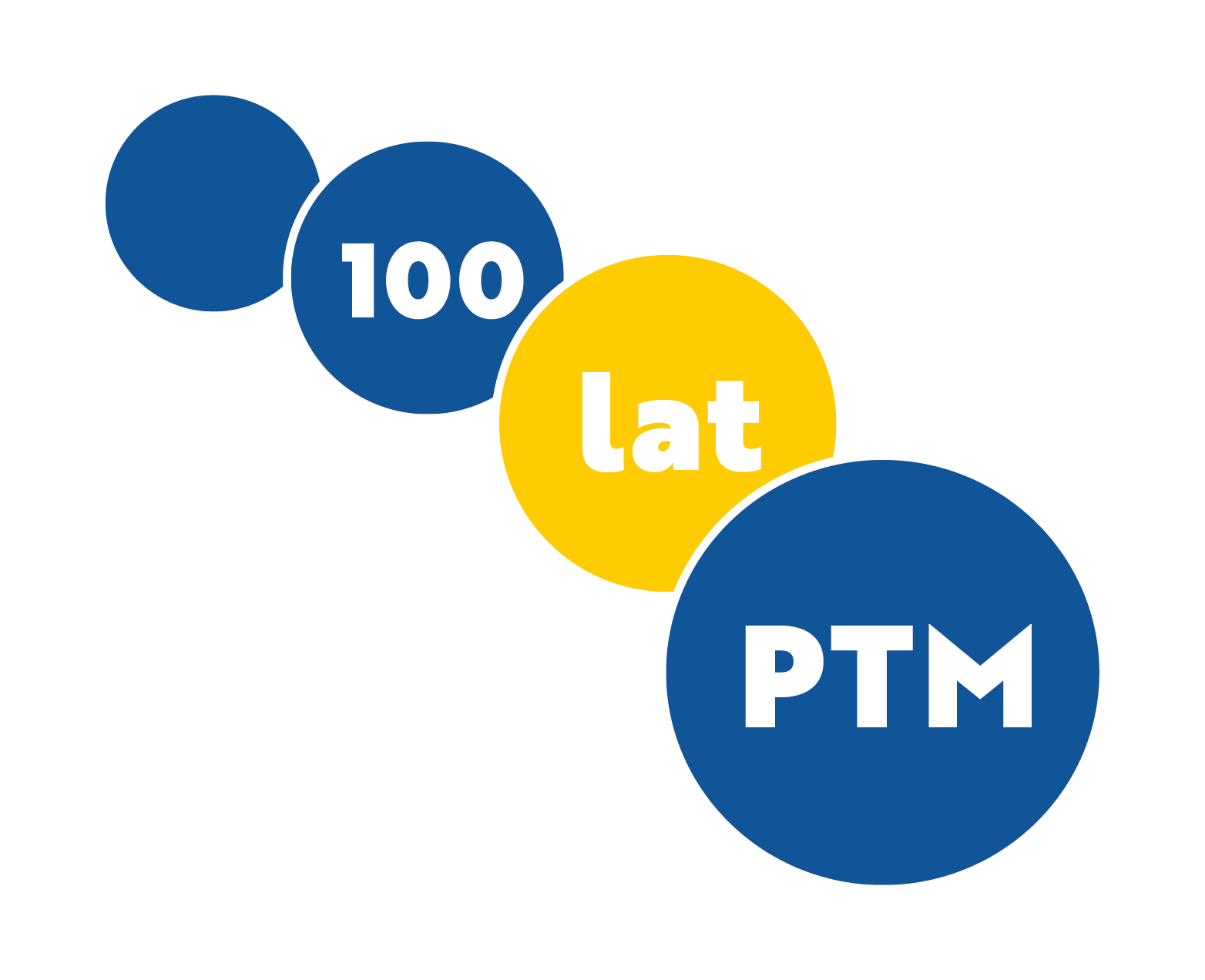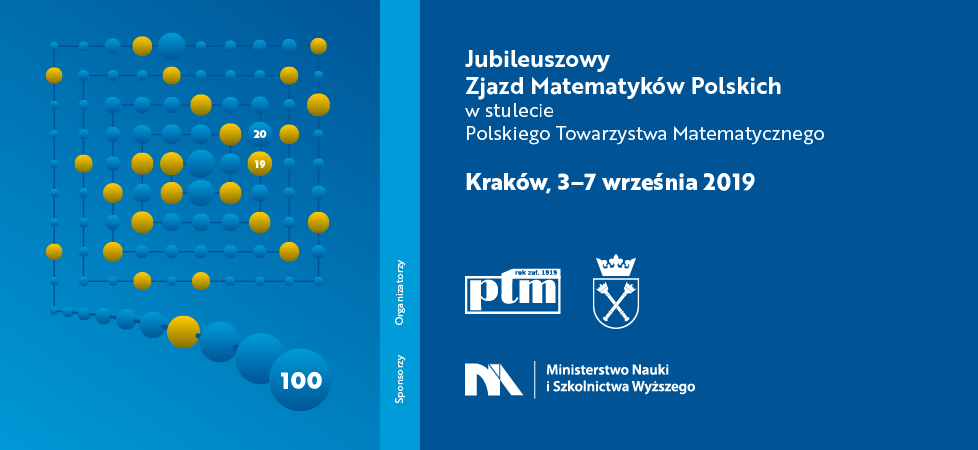Jubilee Congress of Polish Mathematicians - historical and future perspectives
The Congress will take place in Kraków, from September 3rd to September 7th 2019. It will commemorate the 100-th anniversary of the foundation of the Mathematical Society in Kraków (April 2nd 1919), which was soon after transformed into the Polish Mathematical Society.
It is remarkable that in Poland, a country which has regained its independence after 123 years of non-existence, there have emerged many mathematically talented young individuals. They worked hard and used their talents to lead Polish mathematics to the forefront of world mathematics in the interwar period (1919-1939). The most known accomplishments were due to members of the Lwów School of Mathematics (Banach, Mazur, Schauder, Steinhaus and Ulam) and the Warsaw School (Borsuk, Eilenberg, Kuratowski, Leśniewski, Sierpiński and Tarski). Many important results were obtained also in Kraków (by Leja, Ważewski, and Zaremba), Vilnius (by Marcinkiewicz and Zygmund), and by cryptographers from Poznań (Rejewski, Różycki and Zygalski known for breaking the Enigma).
These glorious years were brutally stopped by the outbreak of the World War II, in which many mathematicians have lost their lives. Many mathematicians have left Poland (before and after the war), they have settled in various places in the world where they continued mathematical research. Names such as Bergman, Kac, Spława-Neyman, Tarski, Ulam, and Zygmund are well known and appreciated not only in the world of mathematics but also in the scientific world in general. Thanks to them and other outstanding Polish mathematicians at leading scientific institutions all over the world, mathematicians in Poland stayed up-to-date with developments in their fields. This has greatly alleviated the isolation of Polish science in years 1945-1990. The cooperation with Polish emigrants gave the next generations of Polish mathematicians the opportunity to study, work, and conduct research at world’s top universities. Some of them remained in the West, became very successful and they still are in contact with mathematicians working in Poland. The scale of their success is best exemplified by the large number of speakers of Polish origin invited to mathematical congresses (International Congress of Mathematics (ICM) and the European Congress of Mathematics (ECM)). Many of these outstanding mathematicians will attend the Jubilee Congress.
The Congress will provide us with an opportunity to sum up the last hundred years of Polish mathematics. It will be the place of meetings, discussions, and sharing plans for the future. This will give us a chance to outline a vision of progress and to give a boost to mathematicians in Poland, in hope that Polish mathematics will reach the position it held in the interwar period.
The representatives of Polish universities and other reaearch units, as well as mathematicians connected with Poland but employed at institutions abroad (including some very prestigious ones) will take part in the Congress. Besides researchers, mathematics teachers will also be present, as well as representatives of other communities connected with mathematics. This will be an oppurtunity to integrate the whole community.
Lectures given by Polish outstanding mathematicians from all over the world, panel discussions about the state of mathematics (and science in general) lead by most noted representatives of the mathematical community, meetings with those who have been living abroad for many years, meetings those whose great accomplishments have already earned them their place in the history of mathematics with those who are just beginning their journey in the field – all of this will make the Congress in Kraków an unprecedented event, a chance to give a boost for the future growth of Polish mathematics and to present mathematical ideas and accomplishments of Polish mathematics to a wider audience.
Włodzimierz Zwonek
Dean of the Faculty of Mathematics and Computer Science
of the Jagiellonian University in Krakow



